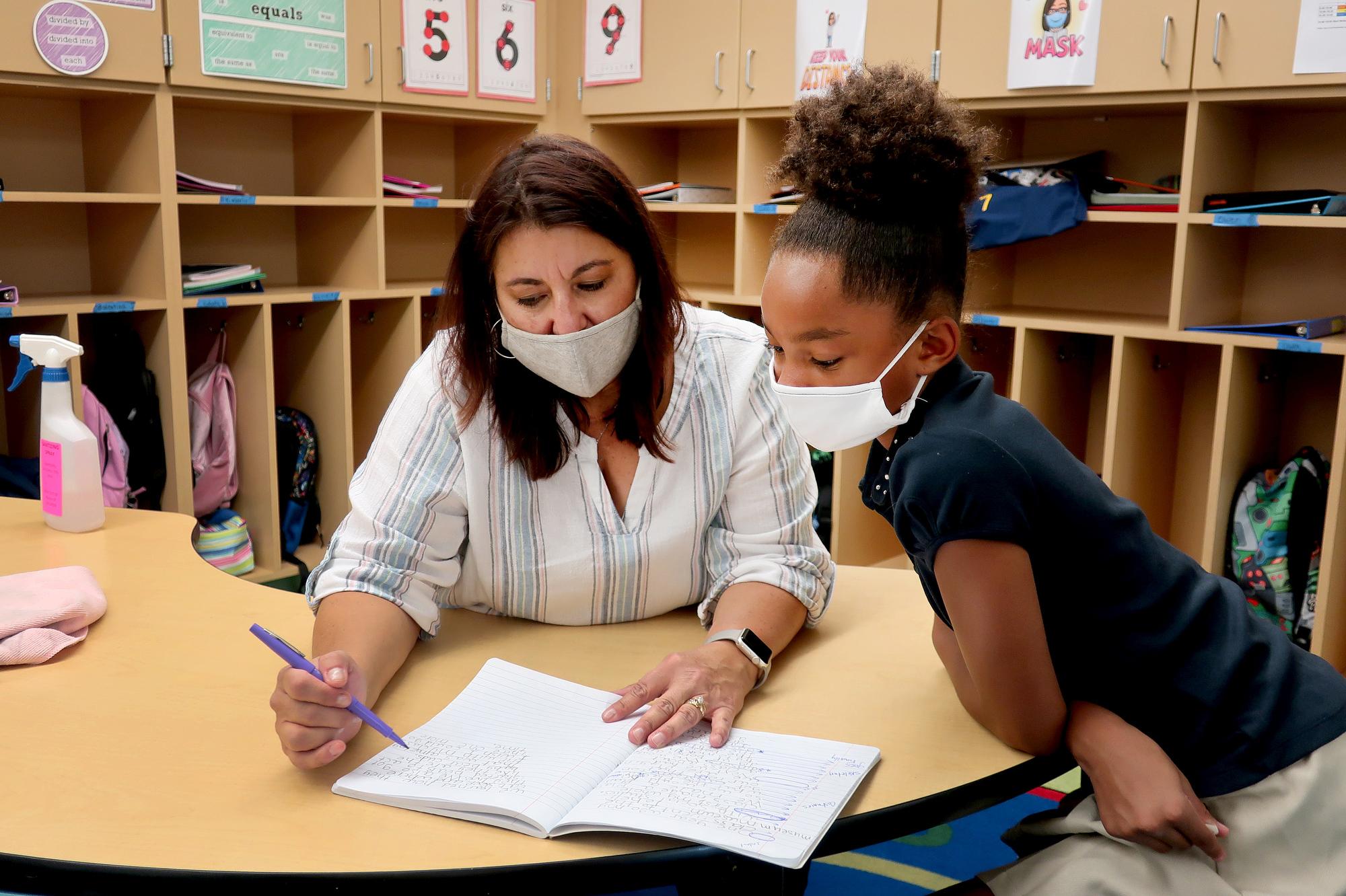
Some state lawmakers plan to push for skipping Colorado’s standardized tests this spring, as public schools struggle to catch students up academically during a pandemic that forced months of remote learning.
A proposed bill, if passed, would direct the state department of education to request a waiver from having to administer the federally mandated tests. The Biden administration hasn’t announced yet whether it will grant states such waivers.
The annual tests, referred to as CMAS, measure students’ academic progress at the end of the year in English language arts, math, science and social studies.
“The problems with actually moving forward with this test are great, and I think they’re too great to overcome in the middle of a pandemic,” said Senator Rachel Zenzinger, one of the bill’s sponsors, who stressed that she is not advocating for a permanent elimination of the standardized tests.
Zenzinger said she has a number of concerns if the tests are given this year, including the reliability and value of the test data used to compare students, schools and districts. She also worries about the psychological stress on students, and the mechanics of how students learning remotely would take the tests.
“Do they have a parent or sibling that is helping them? What if they have problems with technology and they’re not able to move forward and they can’t ask anybody for help? What if they don’t have good access to broadband? What if you have multiple students in a household with only one computer?”
If students have to take the tests in school, thousands of computers distributed to thousands of low-income children would have to be collected, scrubbed, and updated to allow this year’s tests to be administered.
“While they are doing that, how are the kids in a hybrid situation, which is the majority of the state, how are they learning from home or learning remotely during this time? It’s just not practical.”
Superintendents and many educators across the state are also pushing to cancel the tests.
The Westminster Public Schools Board of Education approved a resolution earlier this year asking state leaders to suspend the tests. Superintendent Pamela Swanson argues that given the loss of student learning during the pandemic, more time should be spent on teaching and not testing.
“We are all for accountability and the need to know where our students are academically, but we have ways to measure achievement without spending valuable dollars and resources on tests that will not provide us with meaningful information in a timely manner,” Swanson said. “We need to spend every available moment making up for lost learning because of the pandemic.”
Westminster Public Schools was able to provide in-person learning for almost three months last semester. Still, about 30 percent of students are using an online virtual learning platform with “varying degrees of success,” district officials said.
“Some students thrive in this environment, but we don’t need a time consuming, stressful test to confirm that many students are struggling to learn during this pandemic,” Swanson said.
Some education groups believe there is merit in administering the tests.
“This enables us to have some information, which is better than no information, about how kids are doing,” said Van Schoales, president of A+ Colorado, which advocates for changes in public education. “It’s important to have it so we understand learning loss.”
Schoales said he believes there are huge differences between how districts are serving students now and it would be helpful to know what worked and what didn’t.
“I think it’s likely that there are places and groups of kids that actually did better. I think there are a lot of kids that did far far worse and we know nothing about this except through anecdotes. If not CMAS, how else are we going to know if kids are reading?”
Testing critics say teachers are continually assessing their students in a myriad of ways and parents can ask for that information. Moreover, they argue that the point of standardized tests is to compare between schools, districts and subgroups of children when factors are constant. This year was anything but, with 178 districts switching back and forth between remote and in-person learning and thousands of students at times without access to broadband or computers.
Still, Schoales and other groups want more transparency from school districts, even if it involves individual school districts reporting out where students are academically.
“It’s like asking physicians and physicians saying you know, ‘I’m not going to share how our patients are doing because I'm a little worried that people are going to come after us for not providing quality health care.’”
Another group, Transform Education Now, said it has surveyed about 650 families.
“The majority of families are not confident that their student is prepared to move on to the next grade level, without a way to measure that, families are left guessing,” said the group’s Ariel Smith.
Denver parent John Johnson said he has talked to many families who said they are concerned about how the school districts will advocate for students who’ve fallen further behind academically.
Johnson is a “bit on the fence” about administering CMAS tests this year. On the one hand, he said, the test only captures a moment in time and can’t be used to compare with last year because tests weren’t administered last spring because of the pandemic. But he worries about friends of his own high schooler, who don’t have parents at home during the day to supervise their children.
“I'm in favor of the test if it's going to help students get to where they need to be. If it’s really going to make a difference and will there be action that’s going to follow? Will we ever gain that year back that some students have lost?”
Senator Zenzinger, along with some parents who’ve voiced their opinions on social media, said she’s also worried about adding one more thing on the plate of students who’ve already experienced psychological and emotional turmoil.
“I think students will not want to do it. They’ll rush them. They’ll run into technological or internet barriers. I really don’t think it is going to an accurate, reliable sampling of data.”
Meanwhile, a stakeholder group made up of school districts, advocacy organizations and teachers unions, made recommendations on state assessments, accountability, accreditation, and educator evaluations for the 2020-21 school year.
They recommended not to administer social studies and science standardized tests, and couldn’t come to a consensus on English Language Arts and Math.
Those in favor of administering the tests wanted to measure learning loss, and provide families with academic information and student progress. Those opposed said testing would waste valuable instructional time, perceived value and credibility of assessments, and lead to misinterpretation of student results in the context of COVID-19.
The group recommended pausing school and performance report cards in 2021-2022. Because no tests were administered in 2020, teachers’ evaluations will be based 100 percent on their professional practice score for 2020-2021 school year.
Any final decision on a testing waiver will need to be made quickly. State board of education member Karla Esser, who was a teacher, school and district administrator, said it takes weeks for a school district to prepare for standardized tests.
“It's extremely complicated,” she said.
State Commissioner of Education Katy Anthes said in a letter to superintendents that she doesn’t think they will have a definitive answer on whether the tests are going forward until late February, at the earliest, given the fact that the legislature is in recess until February 16 and the new U.S. secretary of education hasn’t been confirmed yet. Until then, she said, current law and the need to be prepared dictates that school districts must start planning for assessments to be conducted.









